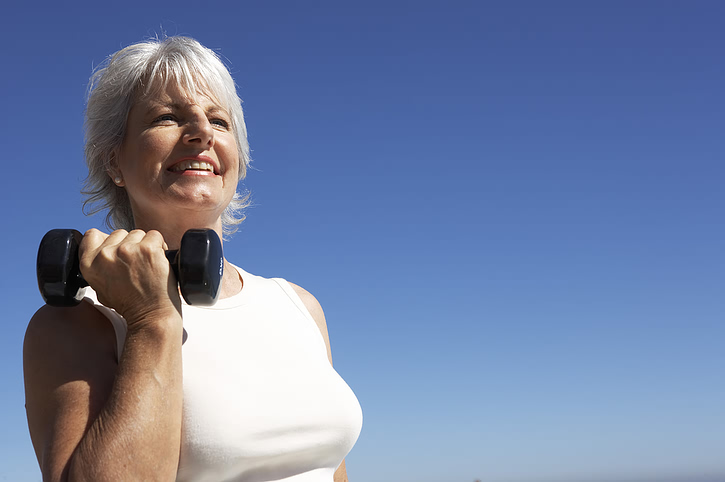| Greetings!
Obesity Breakthroughs and Lectures at the state annual bariatric meeting can be found in this newsletter. Also have links to some of the presentations. More about stress and other things.
Sincerely, Joseph A. Kuhn, MD
|
Metabolism and How to Improve
Lecture notes from support meeting
| |

MCDH Bariatric Support Group Meeting Notes
January 14, 2013
Dr. Joseph Kuhn was the speaker for the night, and his topic was "How Body Composition Affects Metabolism." He began his presentation by likening the body to a car engine. He said that in order for a car to work efficiently, it had to have all of its fluids topped off, and that our bodies were no different. Even at rest, our bodies use energy. The measure of the amount of energy we use at rest is called our basal metabolic rate, or BMR. Dr. Kuhn had a slide in his Power Point presentation that showed how to calculate one's BMR. (I have attached the Power Point slides to these notes, so that you may see the formulas also). In addition, he told the group that one could have his BMR measured using a calorimetry device, such has the Med Gem, which he uses in his practice. The person breathes into the device for about ten minutes, and it measures the BMR. However, the patient cannot have had anything to eat or drink for hours prior to the test being performed, and that makes it bothersome for the patients.
Next, Dr. Kuhn talked about factors that affect one's metabolic rate. Some factors include: genes; age; muscle to fat ratio; activity level; eating frequency; nutrients; vitamins; minerals; and supplements. Dr. Kuhn said that there are 18 genes that have been shown to help determine whether a person will become obese. He said that there were blood tests available that could tell whether or not an individual had these genes. In fact, he stated that obesity was 60% to 90% predictable based on one's genetic code.
Age plays a big part in determining one's metabolic rate. As we age, our calorie needs decrease. In fact, they decrease by 2% per decade. So, if we continue to take in the same number of calories we did when we were in our 20's when we are in our 40's or 50's, we will gain weight.
Muscle mass, or lean body mass, also helps determine our metabolic rate. Dr. Kuhn told the group that muscle cells were 8 times more demanding than fat cells. That is, muscle uses 8 times the energy that fat cells use. He said research had shown that just strengthening one's core muscles and use of small hand weights to tone arms, would increase the metabolic rate. After exercise, muscle cells continue to use more energy for hours!
Next, Dr. Kuhn spoke about exercise and how it affects metabolic rate. He stated that exercising at a moderate intensity level, burns mostly fat. When exercising at a moderate intensity level, one should be able to carry on a conversation. Exercising at a high intensity level burns mostly carbohydrates. Dr. Kuhn said that there are some theories which say burning mostly carbs., triggers a hunger for more carbs.. Therefore, to lose weight, individuals should exercise at a moderate intensity level. He recommended using a treadmill or elliptical at a low level.
Dr. Kuhn told the group that fasting decreased one's metabolic rate. The body sees fasting as it being in starvation mode, so it decreases the rate at which it burns calories in order to conserve energy. Dr. Kuhn advised everyone to eat small meals throughout the day to avoid this phenomenon.
Metabolism is governed by thousands of chemical reactions in the body. These chemical reactions require certain vitamins and minerals in order to occur. Some of these vitamins and minerals are: B vitamins, in general, especially B12; vitamin C; and iron.
Dr. Kuhn also spoke about the role hormones play in regulating metabolism. Thyroid hormone is very important in this way. Testosterone and estrogen also affect one's metabolism. Dr. Kuhn's Power Point slides (attached to this email) provide more information about this aspect of metabolism regulation.
Finally, Dr. Kuhn summarized his presentation by reminding the group of the ways in which one's metabolism could be raised. He stressed the need to exercise regularly at a moderate intensity level and to incorporate strength training into the routine to build muscle. He also said to give the body the fuel it needs to stoke its metabolism. He further said to eat breakfast to get the metabolism started each day; eat small meals throughout the day; eat mostly vegetables, lean proteins, and fruits; and take the vitamins and supplements your surgeon advises. In closing he added that there were some foods that could be considered fat burners: hot mustard; apples; green tea; grapefruit; and lean meats.
|
February SUPPORT MEETING:
February 11, 2013
7-9:00 pm, Medical City
NEW LOCATION: Building E
City Hall Room
Second Monday of Month
|
February 11, 2013
Stress and abnormal eating behavior.
How to manage stress.
|
|
New Referrals
| |
For new referrals, we will mail a DVD to a potential person who is considering their options or who simply wants to learn more about bariatric surgery.
You can Email our new patient coordinator to assist with mailings:
|
|
Sincerely,
Joseph Kuhn, MD, FACS Medical Director
Jeffrey Henke, MD
WLS Surgical Associates |
|
|
|